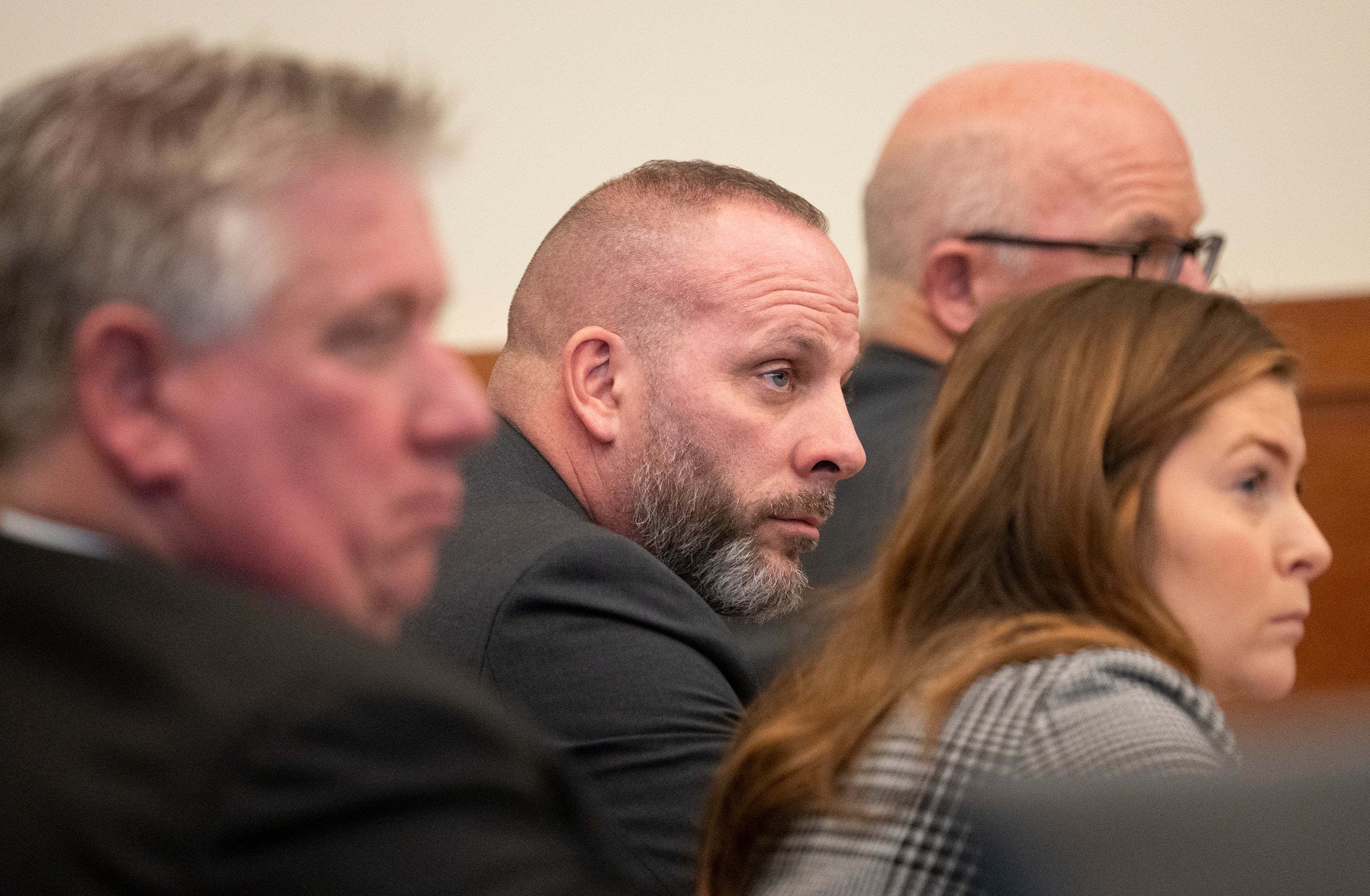Judge declares a mistrial in a former Ohio deputy’s murder trial
COLUMBUS, Ohio (AP) — A judge declared a mistrial Friday in the murder trial of a former Ohio sheriff’s deputy because the jury was unable to reach a verdict.
Jason Meade was charged with murder and reckless homicide in the December 2020 killing of Casey Goodson Jr. in Columbus. Meade, who is white, shot Goodson six times, including five times in the back, as the 23-year-old Black man tried to enter his grandmother’s home.
Judge David Young had already declared a mistrial Friday morning, but retracted it minutes later and commended the jurors for their hard work. Jurors came back to him again to say they couldn’t agree and he instructed them to keep trying. He declared a final mistrial about two hours after that.
Meade testified that Goodson waved a gun at him as the two drove past each other so he pursued Goodson because he feared for his life and the lives of others. He said he eventually shot Goodson in the doorway of his grandmother’s home because the young man turned toward him with a gun.
Goodson’s family and prosecutors have said he was holding a sandwich bag in one hand and his keys in the other when he was fatally shot. They do not dispute that Goodson may have been carrying a gun and note he had a license to carry a firearm.
Goodson’s weapon was found on his grandmother’s kitchen floor with the safety mechanism engaged.
There is no body camera video of the shooting, and prosecutors repeatedly asserted that Meade is the only person who testified Goodson was holding a gun. Meade was not wearing a body camera.
The jury had been unsettled throughout the trial. One alternate was elevated to the main panel during testimony, and three jurors had been dismissed and replaced since deliberations began Wednesday, forcing the jury to restart deliberations multiple times and leaving no more alternates to step in.
Court officials did not say why the jurors were removed, but they can be dismissed for a number of reasons, including if they fall sick, research the case outside the deliberation room, or talk about it to someone outside the court.
